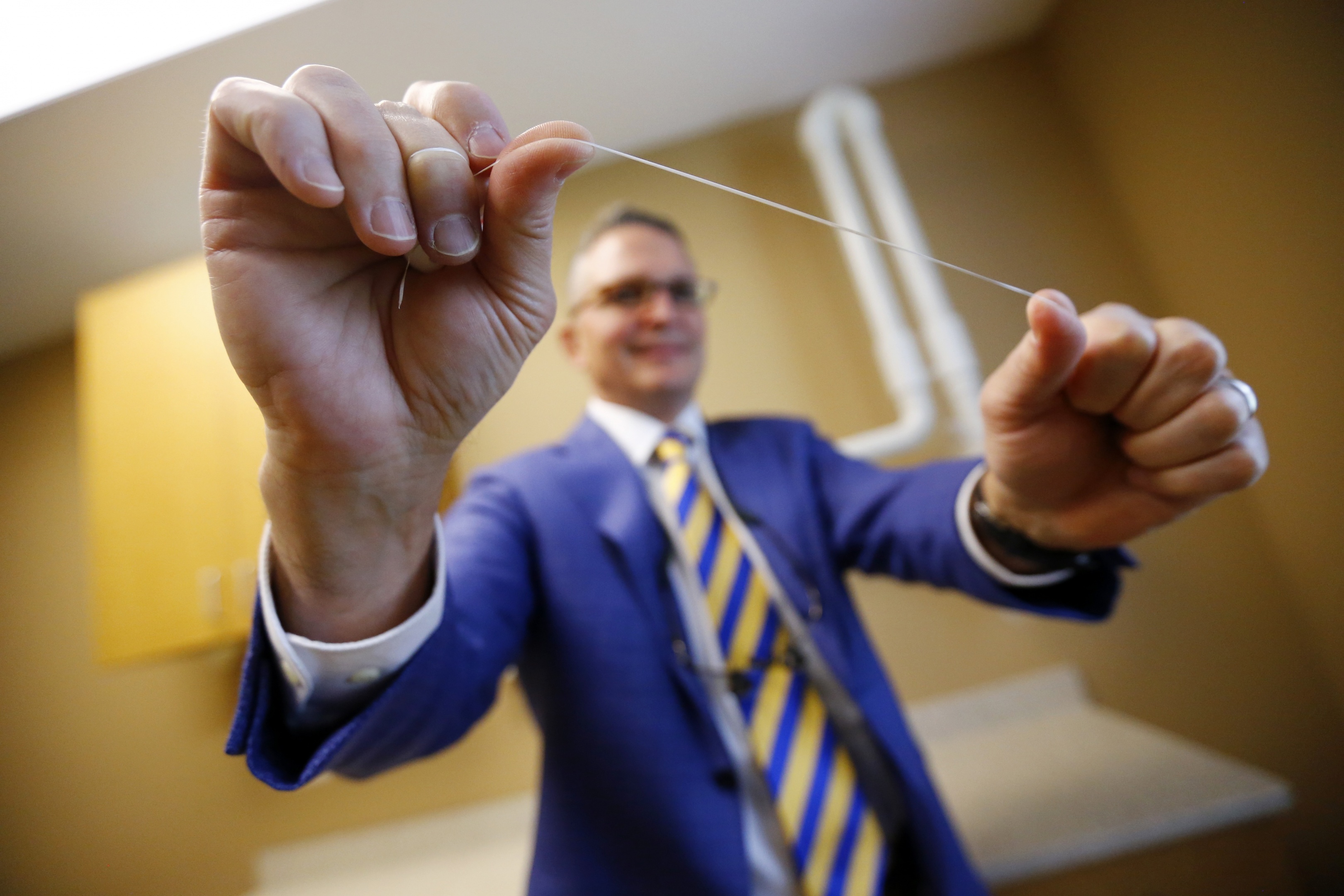
A LEADING British dentist has said that there is only “weak evidence” that flossing prevents gum disease and cavities.
Damien Walmsley, of Birmingham University, said the time and expense required for reliable studies mean the health claims often attributed to floss are unproven.
Walmsley is also a scientific adviser to the British Dental Association, and his claims will no doubt send shockwaves through the profession.
Whilst not completely shunning floss, Walmsley thinks “more sophisticated trials” are needed.
Earlier this year, the US government dropped the flossing recommendation from its guidelines because they must be legally based on scientific evidence.
An Associated Press investigation looked at the most rigorous research of the past decade. Twenty-five studies in leading journals found evidence for flossing is “weak, very unreliable”, of “very low quality”, and carries “a moderate to large potential for bias”.
One review conducted last year said: “The majority of available studies fail to demonstrate that flossing is generally effective in plaque removal.”
One study did credit floss with a slight reduction in gum inflammation. However, the reviewers ranked the evidence as “very unreliable”.
Floss can even cause harm, with poor technique leading to damaged gums and teeth and also dislodging bad bacteria, which can lead to infections.
The British Dental Association said: “Floss is of little value unless the spaces between your teeth are too tight for the interdental brushes to fit without hurting or causing harm.”
READ MORE

Enjoy the convenience of having The Sunday Post delivered as a digital ePaper straight to your smartphone, tablet or computer.
Subscribe for only £5.49 a month and enjoy all the benefits of the printed paper as a digital replica.
Subscribe